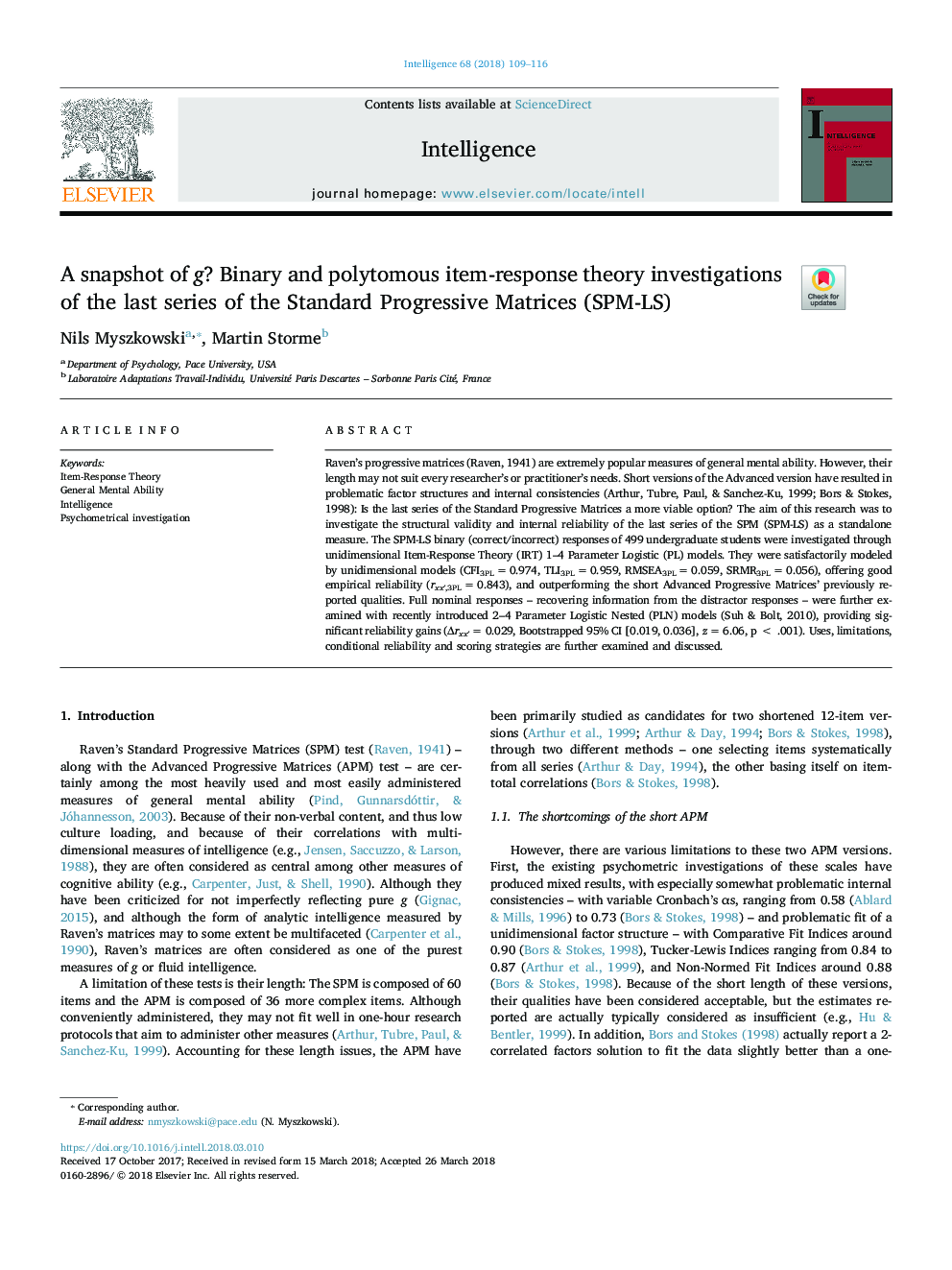| Article ID | Journal | Published Year | Pages | File Type |
|---|---|---|---|---|
| 7292869 | Intelligence | 2018 | 8 Pages |
Abstract
Raven's progressive matrices (Raven, 1941) are extremely popular measures of general mental ability. However, their length may not suit every researcher's or practitioner's needs. Short versions of the Advanced version have resulted in problematic factor structures and internal consistencies (Arthur, Tubre, Paul, & Sanchez-Ku, 1999; Bors & Stokes, 1998): Is the last series of the Standard Progressive Matrices a more viable option? The aim of this research was to investigate the structural validity and internal reliability of the last series of the SPM (SPM-LS) as a standalone measure. The SPM-LS binary (correct/incorrect) responses of 499 undergraduate students were investigated through unidimensional Item-Response Theory (IRT) 1-4 Parameter Logistic (PL) models. They were satisfactorily modeled by unidimensional models (CFI3PLâ¯=â¯0.974, TLI3PLâ¯=â¯0.959, RMSEA3PLâ¯=â¯0.059, SRMR3PLâ¯=â¯0.056), offering good empirical reliability (rxxâ²,3PLâ¯=â¯0.843), and outperforming the short Advanced Progressive Matrices' previously reported qualities. Full nominal responses - recovering information from the distractor responses - were further examined with recently introduced 2-4 Parameter Logistic Nested (PLN) models (Suh & Bolt, 2010), providing significant reliability gains (Îrxxâ²â¯=â¯0.029, Bootstrapped 95% CI [0.019, 0.036], zâ¯=â¯6.06, pâ¯<â¯.001). Uses, limitations, conditional reliability and scoring strategies are further examined and discussed.
Related Topics
Social Sciences and Humanities
Psychology
Experimental and Cognitive Psychology
Authors
Nils Myszkowski, Martin Storme,
